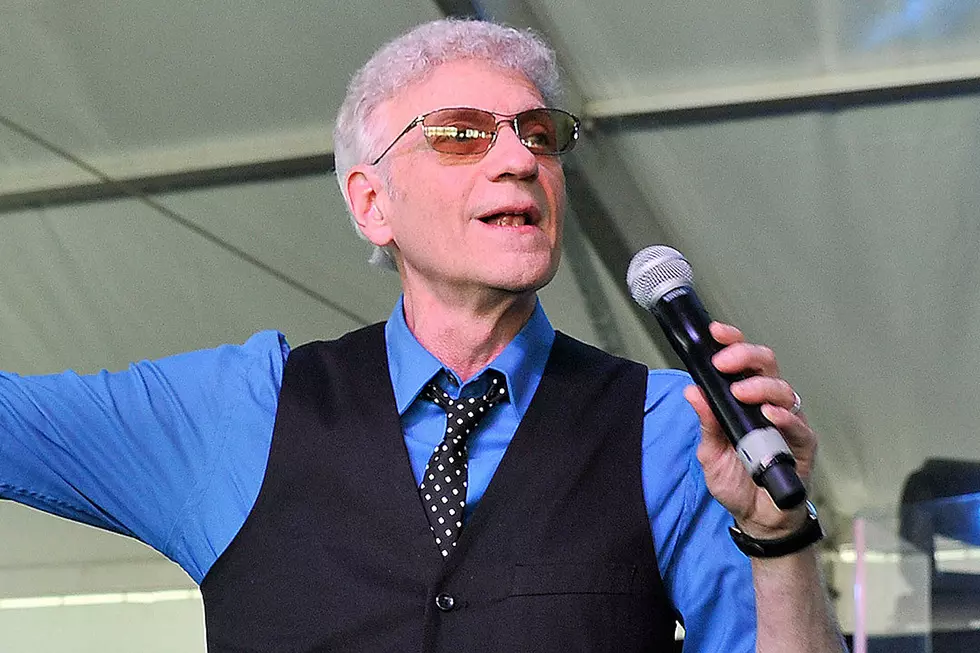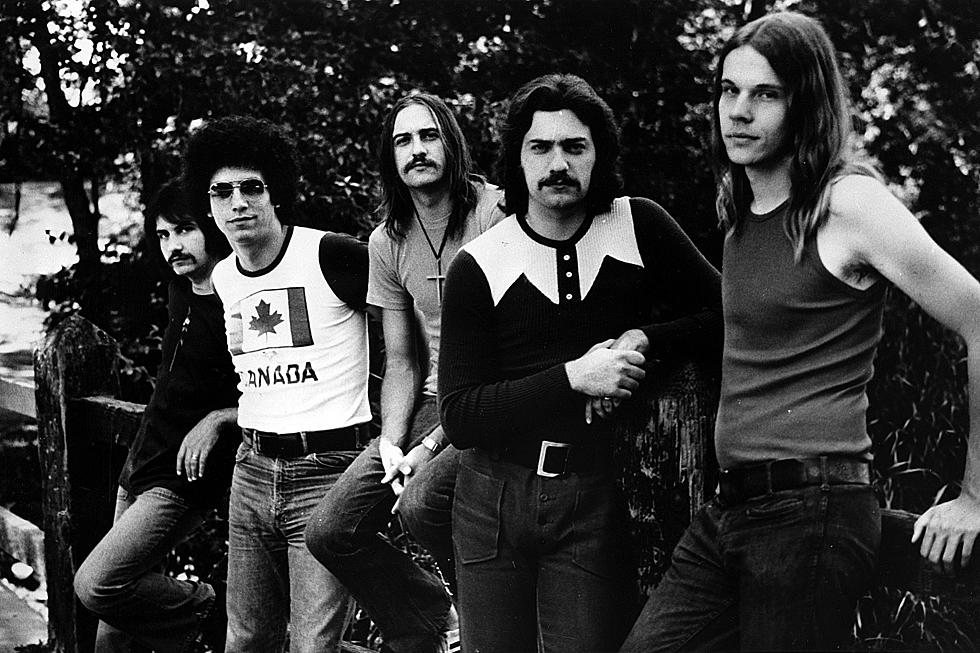
Dennis DeYoung on Next Solo LP, Why Styx Were a ‘Fake Prog Band’
Dennis DeYoung has strong opinions on seemingly every subject you toss in front of him: modern politics, social media, the death of the record industry, musical nostalgia and, when time allows, his own catalog.
The former Styx singer and keyboardist recently talked to UCR about Paradise Theatre, marking the 40th anniversary of the band's classic album. But the conversation drifted into so many other places, we decided to publish a second installment.
Along the way, we touched on the tentatively planned May 2021 release of DeYoung's next solo LP, which follows 2020's 26 East Vol. 1
Let's talk about the next album.
It's happening, despite my better judgment. But Frontiers [Records] wants it. This is not false humility — I'll save that for later — but I was absolutely shocked when Jim Peterik, my friend and neighbor, nagged me for two years to do a record. I didn't want to, but I finally did it. The reception it got really shocked me, honest to God. I don't know if it's because the pandemic hit at the very same moment. When I released my record on Monday, the Wednesday of that week, the WHO — and I don't mean [Pete] Townshend and [Roger] Daltrey — declared a pandemic. I thought [sarcastically], "Well, this is good timing." But the odd thing is people [had] way, way more time on their hands than they ever did before, so it gave people [the chance] to listen to some music for free. You want me to explain the music business to you? You know what the definition of a schmuck is? That's somebody who buys something they can get for free. That's it — that's all you gotta know about the music business. You don't have to get any deeper than that.
It's definitely a bizarre time to release an album, pandemic or no.
If you're young, starting out and trying to figure out how to support yourself, it's pretty tricky. I was lucky — music was the central focus for young people. I've done well. I've made money in this business. But my heart goes out to all the young people trying to chase their dream. The opportunities are nil. I'm gonna be 74 [this] month. I don't have any business making records anymore anyway.
Well, you do have a pretty loyal fan base, dating back to the Styx days. I assume those fans are paying for music.
As they have aged, they're enamored, as all people are, of the music of their youth. They'll take that with them into adulthood. I'm the beneficiary of that, just because of when I was born. I was in the car the other day. There this station that plays everything — you can't define it. "Hey Paula" came on. It was probably early '60s. It came on, and I started to tear up in the car — there's something about that song intrinsically tied to something that happened to me in my life, and it reminded me of how old I am and the passage of time — nothing defines it for people better than music.
That's true. Data shows that people resonate most with the music they hear in their teenage years. Anyway, let's talk a bit about Paradise Theatre. One of my favorite things about that album is that it's subtly very all over the place — there's hard rock, prog, balladry, even flirtations with funk.
I recognize the three guys who were writing and singing this material had very different ideas and musical influences. "JY" [Young] was the rock guy — that's what he does. He doesn't have much time for anything else. Tommy [Shaw] is eclectic — he can go in any direction. And I'm kinda like that, but I certainly lean more toward the proggy things. Prog keyboard players could be equated with show-off guitar players: "Look, I can be in this band, too!"
That combination is what made Styx unique, even if some critics didn't appreciate it.
Here's my thing with Styx: I don't care about your categorizations of this shit. Rock critics, fans: You can keep that to yourself. I'm not in this business, and never was, to conform to whatever it is you like. This is about me. I could have gotten a job where I just tried to please a boss. This gave me the privileged opportunity to think for myself and explore the possibilities of musical creativity. I have very broad tastes in music, and I want to express them. When the Beatles came out and did Sgt. Pepper's and whatever else, they changed the face of popular music by saying, "It's okay, as long as it's great." I thought, "Well, yeah!" Because Elvis [Presley] did "Hound Dog," and then he did "Love Me Tender." I just think it's clearly an expression of the people writing songs not being confined or constrained by an ideology. Can it confuse an audience? For eight albums, we did that thing — I always call it a "fake prog band." We were an American rock band who used classical influences, but Styx was always at heart an American rock band. Most of the prog bands didn't have a Marshall stack. That's not what they were doing. But that's who we were. When you make a transition with a fan base, it can be fraught with peril. But we had four [multiplatinum] albums in a row going from The Grand Illusion and Pieces of Eight to Cornerstone and Paradise Theatre. If you play "Renegade," "Babe" and "Mr. Roboto" for somebody, I don't think they'd think it was the same band. When you get that ol' knee-jerk response from people, "Oh, I don't like Styx," I think, "Well, you don't like a lot of different stuff then." Because it's so broad. That's just a case of bad PR. Because the music was fundamentally what it is. If you like it, I'm happy. If you don't, the friendly skies are just filled with other airlines you can get on.
Definitely. To wrap up, I'm curious to hear this new solo album.
It's gonna be cool. I'm glad I did it. They're good songs, and that's it! I've got a nice batch, and they're eclectic. I just finished a tune I really like called "The Isle of Misanthrope." It's for who I like to call the "prog noggins."
Ranking Every Styx Album
More From 102.9 WBLM










